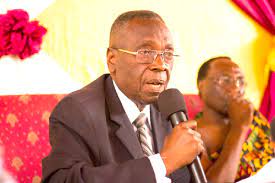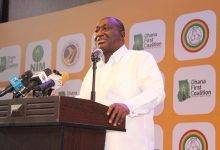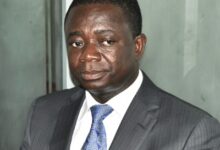
Constitutional review should not tackle only one arm of government but also the others as well as all the flaws in society, says a retired Supreme Court Judge, Mr Justice Stephen Alan Brobbey.
According to Justice Brobbey, there is the need for a wider stakeholder engagement and thinking on the review in order not to focus on only one aspect of governance such as the judiciary to the neglect of all the flaws in society that needed to be fixed.
“If you have the chance to review the constitution, don’t only concentrate on the judges but the sort of redundancies we have in society that we can correct and if you do that, you will have a few questions to answer,” he explained.
The Justice made this call at a seminar held at the Institute of Economic Affairs (IEA) to engage stakeholders in a discourse on the review of the 1992 constitution.
On the issue of chieftaincy, he said chiefs were important to society as they were unifiers and should not be dividers at any time but recent utterances of some chiefs had made their unifier status questionable.
He explained that “if you are a chief and you sit in public and scream support for one party while condemning the others, then you are a dividing character.”
He added that the clause in the constitution that stops chiefs from participating in active politics was put there to protect chiefs from political pressures and further stop them from dividing the society but some continued to do the opposite.
Regarding the need for Ghanaians to engage in inclusive democracy, he said the contents of the constitution should be what the people desired and not what some individuals wanted due to their selfish interests, adding that “the punishment of the wise not to engage in politics is to be ruled by fools.”
He appealed to those responsible for the constitutional review to avoid slandering its makers and sponsors as that would lead to abuse and self-proclaimed contradiction, because “nobody is a monopoly of knowledge.”
Concerning the issue of whether the four-year tenure of a government was adequate to effect enough development in the country, he said the issue would remain contentious because one aspect of society would argue the four years was enough, whereas the other would argue it was not, hence the need to leave it untouched.
He explained that the first four years of a government was to experiment policies and lay the foundation for development and continue to implement them in the second term only if the government remained a favourite of the people.
“Eight years is assumed to be enough for a government to bring about development but if the government is bad and has been given a first term of more than four years, it would be difficult to get them to leave, hence the need to maintain the four-year first term but if Ghanaians believe the four years is not enough, then it should be amended accordingly,” he said.
BY JESSEL LARTEY THERSON-COFIE & ELIZABETH OFFEI







